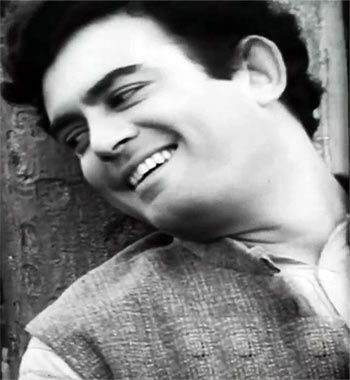 In our special series re-visiting great Hindi film classics, we look back at Sanjeev Kumar's Dastak (1970).
In our special series re-visiting great Hindi film classics, we look back at Sanjeev Kumar's Dastak (1970).
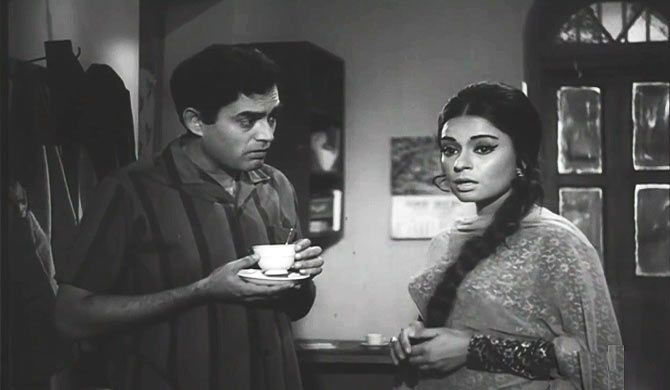
Snapshots of Mumbai’s various landmarks, operational mills, crammed roads teeming with double-deckers, towering skyline overlooking rickety slums captioned in a lingering visual of Bombay Central station frame the black and white opening credits of Dastak.
A city of dreams and disparity, where hopes and hardships, strife and success, hostility and harmony, faith and fallacy regularly collide, isn’t easy to call home as the newly married Hamid and Salma find out in Rajinder Singh Bedi’s crackerjack directorial debut.
One of the celebrated stalwarts of Urdu progressive writers movement, Bedi’s writing credits include acclaimed classics like Devdas, Madhumati, Mirza Ghalib, Satyakam, Anupma and Abhimaan.
Released in 1970, Dastak is a celluloid adaptation of the Urdu play, Naql-e-Makani he penned during his All India Radio stint in pre-Independence Lahore and chronicles a blameless married couple’s humiliation and horror over ugly prejudices.
Bedi was 50-something when he made Dastak and benefits hugely from Hrishikesh Mukerji’s taut editing and Kamal Bose’s elegant camerawork.
Interestingly, he wrote the dialogues for the 1957 Musafir, Mukerji’s first film as director, which although entirely different in theme and texture, also revolves around a house in Mumbai and three different families renting it consecutively.
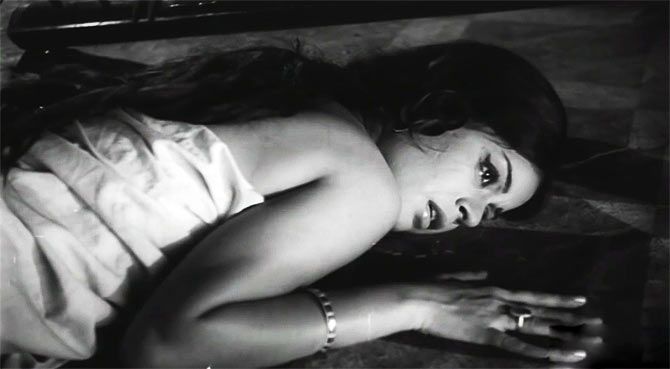
Coming back to Dastak, a suave Sanjeev Kumar plays Hamid whereas Film and Television Institute of India alumna Rehana Sultan makes her debut as his homemaker wife Salma. They’ve only recently shifted residence, a definite upgrade from the formerly rented shanty or so as their conversation implies.
Oblivious to the history of the disrepute imprinted on their new address, previously inhabited by a notorious prostitute Shamshad Begum (Shakeela Bano Bhopali) now running a brothel a couple of lanes apart, Hamid and Salma weave sweet, sensual dreams of marital bliss.
In a space once marked by flesh trade, these two are yet to consummate their marriage deferred by a late night knock on the door, a rude realisation.
Despite their attempts at normalcy, the increasing and demeaning intrusion upon their privacy and peace make Hamid and Salma realise they’re perceived in the same social light as the erstwhile occupant of their abode.
The hypocrisy is unmistakable considering the neighbourhood (represented most keenly in Anwar Hussain’s deceitful paanwala) gossiping and ganging up to disgrace the innocuous duo, as a pair of pimp and prostitute, is slyly orchestrating their stumble for its own personal gain.
Meanwhile, Manmohan Krishna, playing an elderly resident of the adjacent building, sees through their motivations and is the only sensible voice standing up to the vicious mob.
Regrettably, a much wary Hamid mistakes his concern for curiosity.
This would take the shape of cringing melodrama and cacophony under run-of-the-mill treatment but Bedi’s restrained approach draws a stinging, sharp picture of Mumbai’s prevailing crudeness and insensitivity as well as the mental toll it takes on the not so hardboiled.
Likewise, these tense episodes do damage Hamid’s psyche to an extent. Bedi goes on to depict how even the most decent of men turn into vile versions of themselves when hit by a sense of futility. Hamid’s manner of protecting his wife is also robbing her off the one luxury she values the most -- music, a talent he holds in awe but now forbids Salma from pursuing because of its association to the nautch girls in the neighbourhood.
Suffocated, lonely and the subject of prying eyes across the window, Salma, in one powerful moment of rebellion, strips all her clothing and lies on the bare floor lamenting, 'Mai re, main kaa se kahoon pirr apne jiya ki?'
The despair in her plaint ('Na tadapne ki ijaazat hai na fariyad ki hai. Ghutt ke mar jaon yeh marzi mere sayyad ki hai') leading up to the aforementioned instance and esoteric visuals of her running across desolate backdrops, convey her pent-up emotions in poetic measure.
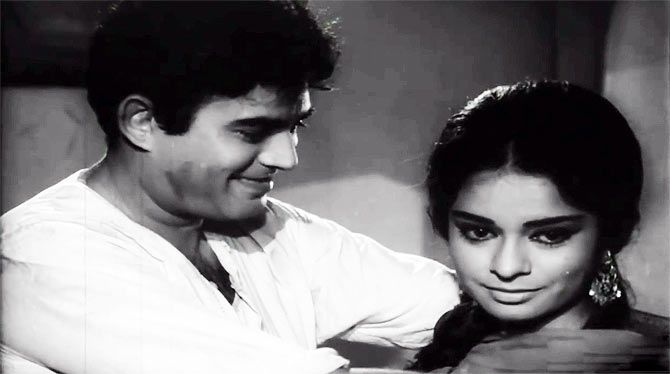
Madan Mohan’s National award-winning soundtrack and Majrooh Sultanpuri’s penmanship not only understand the depth of Dastak’s bittersweet scenario but also render it an exquisiteness that surely deserved better memory.
Words fail to encapsulate the magic that is Lata Mangeshkar’s singing of classically rich compositions like Baiyan na dharo and Hum hain mata-e-koocha-o-baazar ki tarah. Mohammad Rafi’s surreal delivery in Tumse kahoon ek baat is no less significant.
Apart from refined melody, Bedi indulges in ample symbolism (caged birds et al) to reveal the inner anguish of his characters, their simmering sexuality. Some of it is disconcerting too.
A shot of Hamida stroking the stove pump to light fire ignites Hamid’s libido and he makes furious love to his wife. The unpleasant nature of the scene, the regret and tears that follow suggest it wasn’t consensual. But the unexpected interlude of romance it unleashes thereafter refuses to confirm this doubt.
Even if life never comes to a standstill, the setbacks remain constant. Hamid’s financial condition, a clerical job and scrupulous work ethics, make it nearly impossible to buy a house.
Bedi also notes the difficulty posed by a Muslim identity in acquiring accommodation even in the Mumbai of 1970s, how it compels Hamid to lie about his name or borrow money from the sympathetic office secretary (a gorgeous, underused Anju Mahendru).
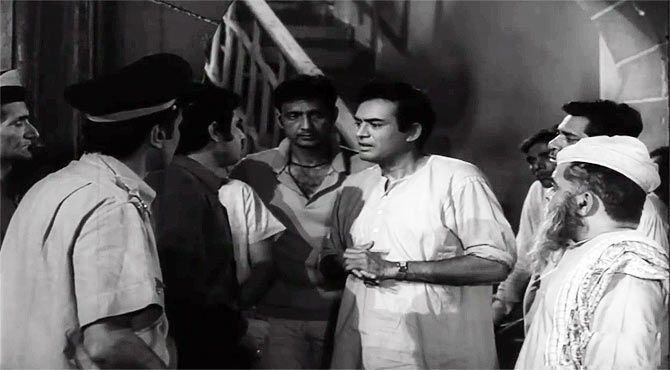
Dastak takes a break from stifling Mumbai to enjoy a breeze of fresh village air in Hamid-Salma’s brief visit to her father. The distraction is designed not only to justify Salma’s claustrophobia in the city but point at the impoverished conditions that compel youngsters to leave their hometown for better prospects.
Sanjeev Kumar and Rehana Sultan exude a rare, real intimacy as husband and wife wherein both their tenderness and frustration towards each other colours the authenticity and desperation of their circumstances and an inevitable loss of innocence.
It’s easy to feel the plight of the poor pair, devising code words like Bombay Central or staying out till midnight in order to protect themselves as well as their sanity.
At a time when the entire nation was reeling under superstar Rajesh Khanna’s mania, Dastak had little chance at the box office but, nevertheless, received critical accolades. Both its leads walked away with a National Award honour for their superlative performances.
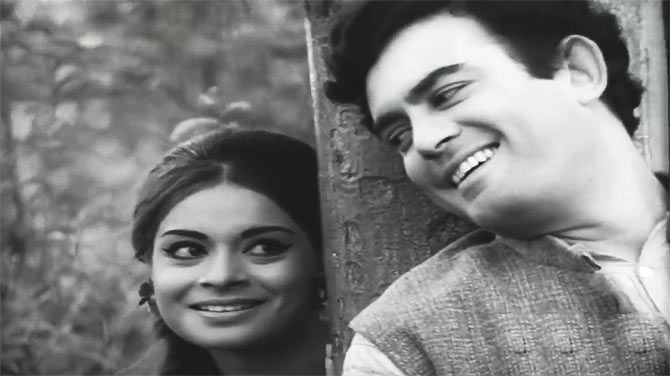
Unlike Sanjeev Kumar who hit gold with his unhinged turn in Khilona, Sultan’s bolder avatar in Chetna the same year proved detrimental for her career.
In an interview to Avijit Ghosh, journalist and author of 40 Retakes: Bollywood Classics You May Have Missed, Sultan shares how Leela Naidu and Mumtaz were contenders for Salma’s role but Bedi picked the newbie over these established actresses.
That is Bedi’s masterful, must-watch Dastak in essence. It rejects conventional ideas of filmmaking to produce a nuanced, uncompromised vision, which slams the inconsistencies and ethics of social structure through ordinary, imperfect people. Yet shows how it’s these very ordinary, imperfect people who battle it in spirit till the very end.










